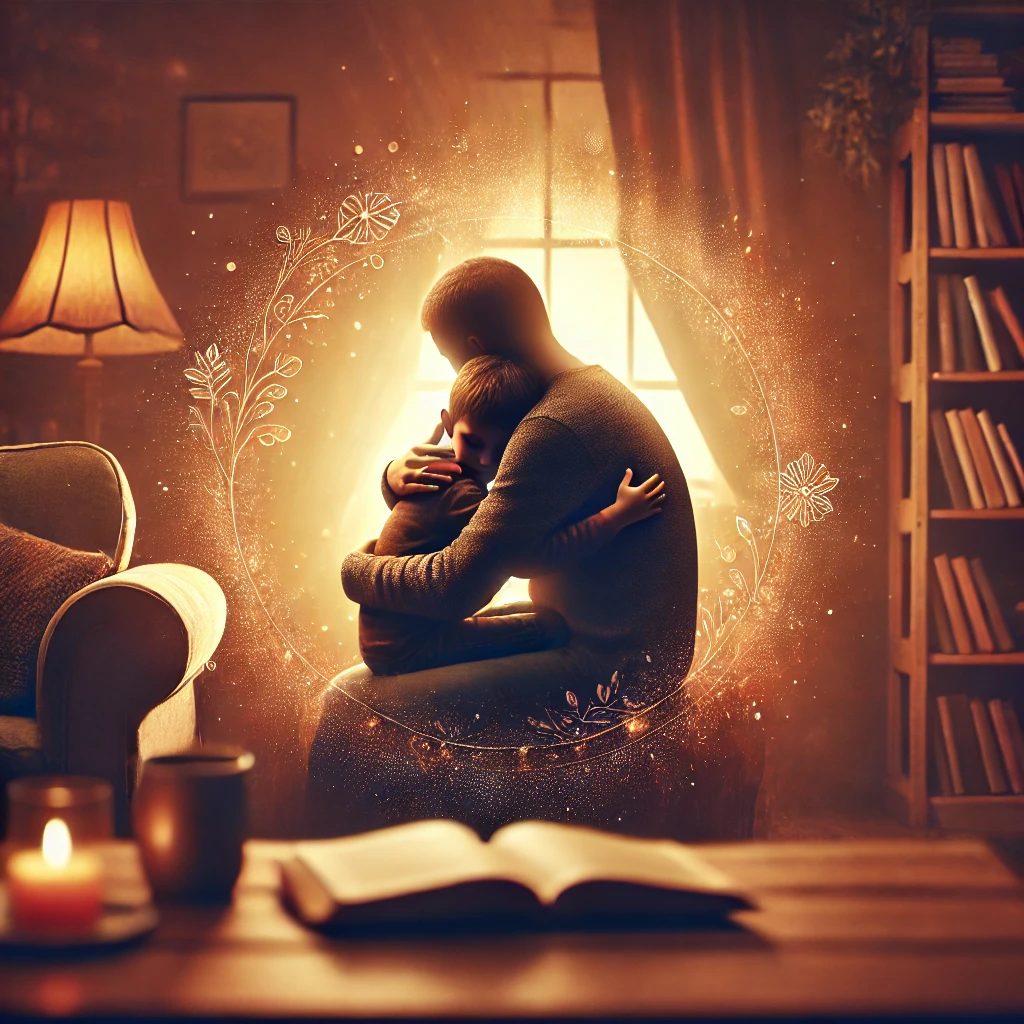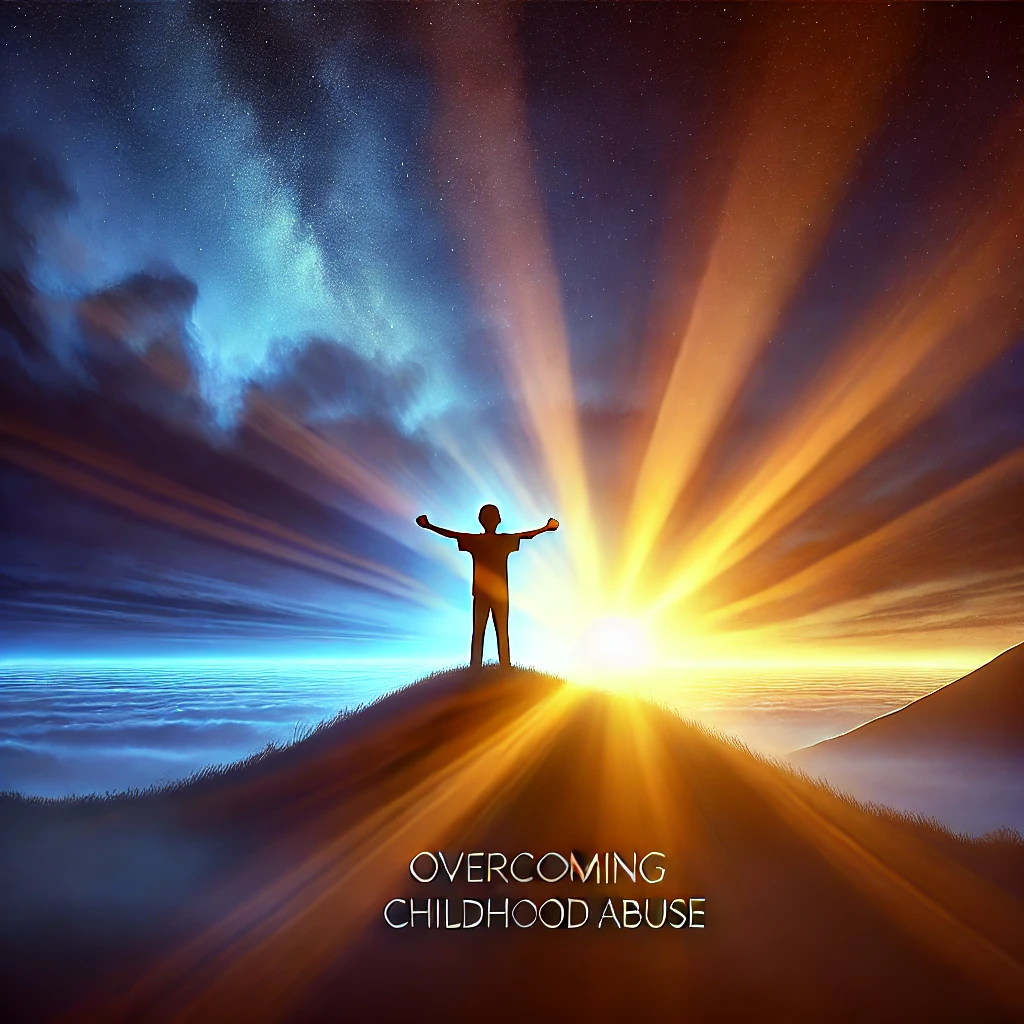Life has a way of shaping us through experiences, both joyful and painful. For survivors of childhood abuse, the pain can cast long shadows over adulthood, making even the simplest joys feel out of reach. I know this because I have lived it. But through an enduring journey of self-discovery, healing, and faith, I have learned that practicing gratitude can be a powerful antidote to the lingering effects of abuse.
This is my story—a story of resilience, healing, and the transformative power of gratitude. My hope is that it will resonate with you, inspire you, and help you find your own path to peace and strength.
A Childhood Stolen

For me, the nightmare began at an age when most children are basking in innocence and love. While other kids splashed in bubbly baths or enjoyed bedtime stories with warm hugs, I endured horrors no child should ever face.
One of my earliest memories is being subjected to ice-cold baths, held under the freezing water while my mother stood over me, smirking at my terror. The emotional wounds inflicted in those moments were as chilling as the water itself. Another torment involved being forced to strip down, stand against a wall with my underwear on my head, and keep my arms raised for hours. I was only six years old.
At night, the darkness in my bedroom was not just physical—it was a manifestation of abandonment. No bedtime stories, no hugs, no sense of safety. Just silence, confusion, and fear.
Abuse doesn’t stop when the bruises fade or the locks on the doors are opened. It weaves itself into the fabric of who you are, whispering doubts, fears, and mistrust into the corners of your mind. It followed me into adulthood, influencing my relationships and my ability to trust others—even my own husband, whom I have loved for over a decade.
But despite the enormity of these scars, I have learned that they do not have to define me.
The Lingering Shadows

Childhood abuse leaves deep imprints on the psyche, often manifesting as trust issues, self-doubt, and a pervasive sense of unworthiness. For me, it planted seeds of suspicion toward almost everyone in my life.
Even with my husband, I sometimes catch myself questioning his motives or doubting his love. My inner dialogue is filled with questions like: What do they think of me? Why did I say that? Are they judging me?
These thoughts are the echoes of my childhood, where I constantly felt unworthy and unloved. Abuse doesn’t end when the abuser is gone—it lingers in the patterns of our thoughts and behaviors. It is a stubborn, unwelcome guest that insists on overstaying its welcome.
Finding Faith and Gratitude
The turning point in my journey began with my faith. I realized that healing could only begin when I opened my heart to God and allowed His love to show me a different way of seeing myself and the world.
For years, I struggled with acceptance—acceptance of myself, my past, and my worth. But as I leaned into my faith, I began to understand that what truly matters is not what others think of me, but what God thinks of me. And to Him, I am enough.
Faith gave me the courage to let go of the anger that had taken root in my heart. Anger is a poison that feeds on your soul, keeping you chained to the pain of the past. Letting go wasn’t easy, but it was necessary.
One of the most transformative lessons I’ve learned is the power of gratitude. It sounds simple, even cliché, but it is profound. Gratitude shifts your focus from what has been taken from you to what you still have. It reminds you that, despite the pain, there is still beauty and love in this world.
Ways to Practice Gratitude

Gratitude isn’t something that comes naturally when you’ve been through abuse. It’s a choice—a daily, intentional practice. These are some methods I’ve found to be transformative:
- Keep a Gratitude Journal
At the end of each day, write down three things you are grateful for. They don’t have to be grand gestures—sometimes, it’s the small things like a warm cup of coffee, the sound of rain, or a kind word from a stranger. This practice helps rewire your brain to focus on the positive. - Start Your Morning with Gratitude
Before getting out of bed, take a moment to thank God or the universe for another day. Think of one thing you are looking forward to or something you appreciate about your life. - Practice Mindful Gratitude
Throughout your day, pause and take a moment to appreciate the present. Whether it’s the beauty of a flower, the laughter of your child, or the comfort of your favorite chair, mindfulness helps anchor gratitude in the here and now. - Write a Thank-You Letter
Write a heartfelt letter to someone who has made a positive impact on your life. You don’t even have to send it—the act of writing is enough to foster feelings of appreciation. - Reframe Challenges
Instead of focusing on the negatives of a situation, look for the lesson or silver lining. For example, a difficult day might teach you resilience, or an argument might deepen your understanding of someone’s perspective. - Create a Gratitude Jar
Every time something good happens, write it on a small piece of paper and put it in a jar. On tough days, revisit these notes to remind yourself of the blessings in your life. - Teach Gratitude to Your Children
Involve your kids in gratitude practices, such as sharing one thing they’re grateful for during dinner. Not only does this strengthen family bonds, but it also instills a positive habit in them early on.
Choosing Gratitude Over Anger
Anger is a natural response to abuse, but it’s also a trap. Holding onto anger keeps you tethered to your abuser, allowing their actions to continue hurting you. Gratitude, on the other hand, is a way to reclaim your power.
When you practice gratitude, you take control of your narrative. You stop being a victim and start being a survivor. You learn to see the beauty in your reflection, to embrace the person you’ve become, and to acknowledge that your worth is not determined by someone else’s cruelty.
Breaking the Cycle

One of the most powerful motivators for my healing has been my children. I refuse to let my past dictate their future. They deserve a whole, loving parent—not someone who is broken by the pain of the past.
Every day, I remind myself that my attitude matters—not just for me, but for them. When I wake up and choose to face the day with gratitude and determination, I am showing them what resilience looks like.
A Message to Fellow Survivors
To those who are reading this and feel the weight of their own abuse: you are not alone. Your pain is real, and your journey is valid. But please know this—you have the power to rise above it.
You don’t have to carry the burden of anger or allow the scars of your past to dictate your future. You are worthy of love, joy, and peace.
Start by practicing gratitude. Begin with small things—the warmth of the sun on your face, the laughter of a child, the fact that you are here, reading this, and choosing to heal.

Gratitude is not a magic wand; it won’t erase your pain. But it will give you the strength to face it, to grow from it, and to find beauty in life once more.
Lets Be Thankful
Healing from childhood abuse is not a linear journey. There will be setbacks, hard days, and moments of doubt. But every step forward, no matter how small, is a victory.
Gratitude is the key that unlocks the door to a brighter future. It reminds you that you are more than your pain, more than your past, and more than the cruelty you endured.
So today, I encourage you to take that first step. Look in the mirror and remind yourself that you are enough. Practice gratitude, lean into your faith, and know that you are loved.

You are not defined by what happened to you—you are defined by how you choose to rise. And you, my friend, are capable of rising higher than you ever imagined! Now, let’s soar!!
Let’s reclaim what is rightfully our’s in this digital noise we live in. Join us in this exploration of how deep the rabbit hole actually goes.

No responses yet